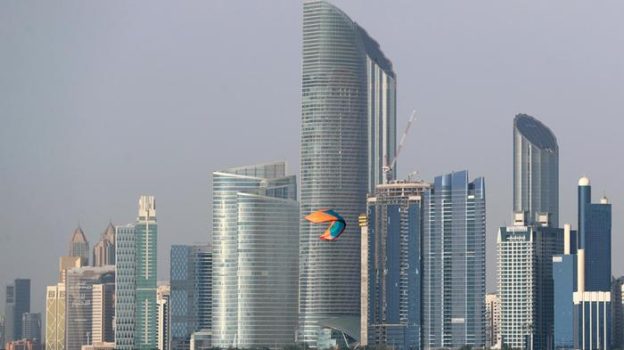The country’s broader policy response to the pandemic has demonstrated its capacity to counter shocks, Moody’s says
Moody’s Investors Service maintained the UAE’s Aa2 long-term issuer rating, the agency’s third-highest, due to the rapid reaction of the country’s various institutions in rolling out a slew of measures to counter the Covid-19 pandemic, which it said did not materially affect the Arab world’s second biggest economy.
The UAE’s fiscal strength remains robust, the ratings agency said as it maintained its stable outlook.
“The rating affirmation is supported by the relatively muted impact of the pandemic on the federal government’s fiscal strength, in part the result of an effective government policy response to the pandemic,” Moody’s said in a statement.
“World leading progress on vaccinations should support the economic recovery, limiting the impact of the pandemic on the UAE’s credit metrics.”
The UAE rolled out its mass Covid-19 inoculation programme last year and has so far administered 10.7 million vaccine doses – which represents a rate of 108.99 doses per 100 people, among the fastest in the world. With aggressive testing and the quick vaccination drive, the UAE has managed to bring Covid-19 cases down in the second wave, as opposed to parts of Europe, the Americas and India, where infection rates have recently risen.
The UAE’s progress in vaccinating its population could allow for an easing of inbound international travel, supporting a “faster-than-expected recovery in the tourism sector, and providing a boost to the hospitality and retail sectors”, Moody’s said.
The UAE was among the first countries in the region to roll out stimulus measures to soften the impact of the pandemic on its economy, support small and medium-sized enterprises and protect the livelihoods of individuals.
Fiscal and monetary measures remain in place for continued economic recovery. Last month, the UAE Central Bank extended parts of its Targeted Economic Support Scheme, a zero-cost loan initiative aimed at boosting liquidity in the banking system – until the end of June 2022. Overall, the UAE has unveiled economic support packages worth at least Dh388bn since the onset of the pandemic.
The impact of the federal government’s stimulus measures on its finances was modest, at just over 1 per cent of the country’s gross domestic product. The federal government’s fiscal deficit was just 0.2 per cent of GDP in 2020, which was funded from existing cash balances, the agency said.
“The broader policy response to the pandemic has demonstrated the UAE’s capacity to respond to shocks,” Moody’s said.
The agency forecasts that UAE’s nominal GDP will recover to pre-pandemic levels over the next three years. It expects non-oil real GDP to rebound by 3.5 per cent in 2021, supported by the recovery in global trade and gradual improvements in the tourism sector. The Central Bank of the UAE forecasts non-oil economic growth of 3.6 per cent this year and 3.9 per cent in 2022.
Moody’s expects the UAE federal government to begin issuing locally-denominated debt this year, with the primary purpose of establishing a domestic yield curve.
This is unlikely to significantly affect the fiscal strength of the federal government as issuance is likely to be “modest”, adding less than a percentage point to the UAE’s consolidated government debt burden this year, Moody’s said.
The rating affirmation is supported by the relatively muted impact of the pandemic on the federal government’s fiscal strength, in part the result of an effective government policy response to the pandemic
Moody’s Investors Service
Separately, the ratings agency also affirmed Abu Dhabi’s Aa2 long-term issuer sovereign rating with a stable outlook.
Abu Dhabi has “very strong balance sheet and very high per capita income that bolster credit resilience, as well as robust institutional strength evident in the government’s capacity to adjust fiscal policy to respond to shocks”, Moody’s said in a separate statement.
Abu Dhabi’s stable outlook reflects Moody’s expectation that the emirate’s fiscal strength will remain resilient to downside risks to the oil market posed by global pandemic developments, given “the vast size of Abu Dhabi’s financial buffers”.
A recovery in oil prices this year will help narrow Abu Dhabi’s fiscal deficit, which the ratings agency forecasts will decline to an average of 3.4 per cent of GDP between 2021 and 2023, almost half the size of last year’s estimated deficit.
https://amp-thenationalnews-com.cdn.ampproject.org/c/s/amp.thenationalnews.com/business/economy/moody-s-affirms-uae-rating-on-strong-fundamentals-and-effective-response-to-covid-19-1.1216845





